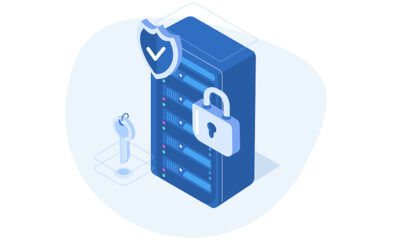More and more events are being moved into the digital space. However, the transformation of the event industry began long before Corona and virtual event formats will continue to grow in importance. We have compiled the ten most popular and well-known virtual event types – from small seminars to 365-day community platforms.
Virtual Event Types
Virtual Hosted Buyer Events
This strategy can easily be implemented for your virtual event by using event tools such as Converve with its matchmaking function. With the help of keywords, interests and AI, you can determine which participants should engage with each other.
The advantages of bringing this format to a virtual context are obvious. You are no longer tied to a specific location or region, but can plan events globally. With the right tools, including matchmaking, you can improve the possibilities for establishing and maintaining connections before and during the event and increase the ROI of your event. To promote targeted interaction, you can also set up virtual 1-to-1 meeting rooms that do not require leaving the event platform.
Have a Hosted Buyer Event planned? Here are the 5 biggest mistakes you should avoid when planning a virtual hosted buyer event.
Virtual Trade Fairs
Although virtual fairs are one of the most challenging virtual event types, they are becoming more common as a result of the pandemic. The experience of wandering through the exhibition halls, talking to exhibitors or making new contacts at the buffet is, of course, difficult to recreate virtually.
But new challenges always bring new opportunities. Through the virtual world, organisers have the opportunity to reach many more interested individuals, save on on-site costs, attract more sponsors and bring together key decision-makers through matchmaking. Presentations of products and services can take place in the form of webinars or virtual keynotes, for example. The virtual booths offer videos, presentations, live chats with the staff or even 1:1 video sessions with the exhibitor.
The effort to organise a trade fair as a virtual event is comparatively high, but software for virtual trade fairs helps you to implement this event type successfully. Exhibition halls, booths and stages are simulated in 2D or 3D worlds, participants register in advance with their data and interests and can use the platform to make contacts in advance and plan their presence at the virtual fair with 1-to-1 meetings. Online you can implement a comparatively structured and more efficient trade fair visit.
When it comes to digitising your trade fair, bear in mind that it also needs an interesting speaker programme so that you can attract participants in the first place.
Virtual Conferences
At a conference, participants gather for one or two days in a location and take part in lectures and workshops that run according to a fixed schedule. This type of event can be converted to virtual format without any problems – especially as far as the lectures and workshops are concerned. Using video calls and software, presentations can easily be broadcast virtually.
For the networking part that goes with it, think about how you can have 1-to-1 conversations at online conferences. For example, set up dedicated rooms for 1:1 video sessions. You should also adjust the concept of your conferences to the virtual format. Spending a day or two in front of the screen is very exhausting for conference participants. Therefore, ensure shorter speeches, breaks, lots of interactivity and sufficient variety. This is the only way you will be able to engage your participants online.
Good to know: Whether online or offline, the choice of speakers is crucial and an important factor of your event. Ensure captivating presentations and exciting online sessions – ideally with speakers who already have experience with virtual event formats.
Virtual Career Fairs
Career fairs are fairs where employers and organisations meet with students, trainees and potential employees. To recruit suitable staff even in pandemic times, many organisers have moved their career fairs into a virtual event format. This virtual solution makes it equally possible for companies to advertise vacancies and put together a programme of informative live presentations and HR keynotes – all with appropriate employer branding.
Interested parties can participate in the fair from home and enter into an exchange with exhibitors via chat messenger or video call. Another highlight are the live or re-live presentations that participants can listen to. Q&A can also take place during the sessions, either via the chat or a moderator takes over the communication between participants and speaker.
365-Day Communities
365-day communities are virtual event formats where small events take place regularly throughout the year and continuous networking is possible. This allows you to use the momentum after a large virtual or hybrid event to continue the exchange. This means that instead of waiting a year for your company’s annual event, you stay in touch with your community who already like your products or services. Your hard work as a planner pays off even more in this case, because you continually create important touchpoints with your audience and don’t lose sight of them. It will also be enjoyed by your community, who can continue to benefit from the networking platform and your events.
By complementing your events with a year-round online community platform, you can promote products, create new revenue streams through more frequent sponsorships, build brand loyalty and, maybe most important, gain valuable customer feedback.
Virtual Workshops
The aim of a workshop is to produce work results in a group. A leader or moderator accompanies the creative process. This type of event is more difficult to translate into the virtual world because it involves not only a lecture but also cooperation in small groups. If you do hold a workshop digitally, make sure that the groups are as small as possible and that the moderation is good – after all, you want to involve all participants.
To keep the attention of the participants also in a virtual setting, you can ask your customers in advance about topics of interest. With this event format, you should also plan shorter sessions with breaks. To give participants the opportunity to ask questions during the workshop, we recommend a tool with a chat function.
Tip: Participation in a digital workshop, online conference or meeting can also be documented with a certificate. This provides additional motivation for the participants.
Online Team Building Events
To strengthen the feeling of togetherness in home office times, online team building events have become increasingly important to bring employees together despite contact restrictions. This digital format is all about creating experiences. A little creativity is needed to create this virtually. Online Escape Rooms, Online Event Boxes and Online Games are just a few examples that also provide digital team spirit in companies.
Virtual Seminars / Webinars
In seminars, the focus is usually on continuing education. If a seminar takes place purely virtually, it is called a webinar. Usually, a speaker gives a lecture, which is supplemented with questions from the participants. Webinars may also include tasks for participants to put into practice what they have learned. While a seminar often takes a whole day (or even several), you should make sure that a webinar is much more compact and that the individual presentations are shorter. The best time for a webinar is 20 minutes, followed by a break before moving on to the next presentation.
Digital World Café
Even though this type of event is still relatively new, it is becoming increasingly popular, especially in change management. It is particularly useful for bringing together thoughts, ideas and knowledge from a larger group. Four or five participants sit at small tables – like in a café – and write down their results on paper tablecloths. In a classic World Café, the participants move from table to table, only the moderator remains seated at his or her table. He welcomes newcomers and at every round introduces what the previous group has worked on at that table. At the end, the result of each table is presented.
The “World Café” event format translates well into the digital world. To implement this format virtually, you need to work with different digital rooms that represent the individual tables. Make sure it is easy to switch to the individual rooms and, naturally, the participants should be able to see each other in the rooms. Use an online tool with a video function to set up individual rooms. As an alternative to tablecloths, you can use integrated whiteboards or online programmes such as Google Docs.
In the real world, you can hold a World Café from 12 to 1,600 people. As a virtual format, be sure to keep the setting small so that the event doesn’t drag on too much. After all, the attention span of online events is much shorter than in real life.
Virtual Product Launch
Apple has been showing us for years how to successfully launch a product on the market. And even in pandemic times, the technology company has shown how it’s done with virtual events. Apple CEO Tim Cook’s presentations will be live-streamed to millions of people around the world. Nothing is spared and thousands of Apple fans and tech enthusiasts eagerly await the show every year.
Still missing the event platform that suits your idea?
Are you still looking for the ideal tool for your virtual event? Converve offers you an all-in-one event platform including a networking and community area with which you can inspire your audience with digital events, workshops, seminars, trade fairs and other virtual event formats. Feel free to contact us at any time. We are happy to help.



